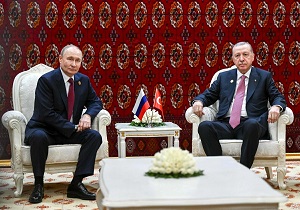Swiss president 'optimistic' about EU deal this year
AFP
BERN — Switzerland's president said Monday she remained hopeful that a deal can be reached this year resetting relations with the neighbouring European Union, despite continued disagreement on issues like immigration.
The EU and Switzerland have said they want to seal an agreement to "stabilise and develop" their relations by updating and expanding a set of more than 120 agreements by the end of the year.
Despite continued disagreement over central issues like immigration and Swiss wage protections, President Viola Amherd told reporters that she remains optimistic.
"It is possible that we won't make it, but I am optimistic," she said, speaking at an event hosted by Switzerland's foreign press association, APES.
And "if we don't succeed, it is obvious that we have to continue trying," she said.
When it comes to immigration and wage protections, the main challenge will be to shift positions at home, she acknowledged.
"We are working on that a lot, we are discussing that a lot," she said, adding that "we don't yet have a final solution, but I think that we have the possibility" to find one.
EU-Swiss ties are currently governed by a patchwork of agreements, and for years the two have been striving to nail down a broader cooperation agreement.
But their relations have been strained since Bern, without warning, slammed the door on the negotiations with its main trading partner in 2021.
Satisfying the SVP
And after the talks tentatively resumed this year, Switzerland's efforts to secure an exemption to a central EU tenet, the free movement of people between countries, threw another spanner in the works.
Earlier this month, Luxembourg's Foreign Minister Xavier Bettel slammed that position, stressing that "Europe is not an a la carte menu".
But Amherd said "the European Commission understands that there must be a solution" that addresses Swiss concerns, since Swiss citizens in the end will be called on to vote on the final deal under the country's direct democracy system.
A main obstacle, she acknowledged, is the opposition from Switzerland's largest party, the hard-right, anti-EU Swiss People's Party (SVP).
"It will be very difficult to find an agreement that satisfies the SVP," she said.
‘It is almost impossible’
Faced with that reality, Amherd, from The Centre party, said it would be necessary to "work with other forces in the country", including unions, to try to secure the popular backing needed for an agreement.
Mechanisms could be found to counter a drop in wages and unlimited migration, she said.
"I am convinced we will find a solution."
Latest News
-
 Trump vows revenge after troops in Syria killed in alleged IS ambush
Trump vows revenge after troops in Syria killed in alleged IS ambush
-
 Gunmen kill 11 at Jewish festival on Australia's Bondi Beach
Gunmen kill 11 at Jewish festival on Australia's Bondi Beach
-
 Hamas marks 38th anniversary, rejects all forms of guardianship over Palestinians
Hamas marks 38th anniversary, rejects all forms of guardianship over Palestinians
-
 Erdogan warns Black Sea should not be 'area of confrontation' after strikes
Erdogan warns Black Sea should not be 'area of confrontation' after strikes
-
 Indonesia flood death toll passes 1,000 as authorities ramp up aid
Indonesia flood death toll passes 1,000 as authorities ramp up aid